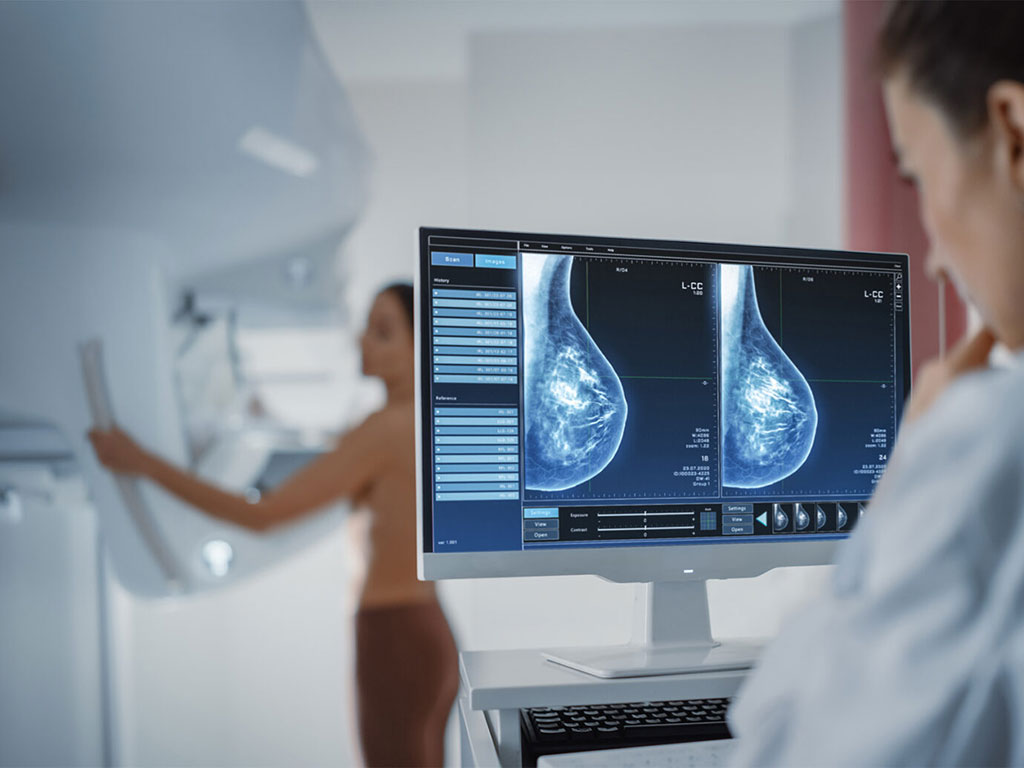AI Uncovers Hidden Heart Disease and Predicts Woman’s Risk for Developing Breast Cancer
Posted on 12 Dec 2023
Recent research has revealed that calcium deposits in the breast's blood vessels are linked to the hardening of cardiovascular arteries. Studies have shown that women with breast arterial calcifications (BAC) face a 51% increased risk of heart disease. Now, new studies have validated the ability of an artificial intelligence (AI) powered solution to uncover hidden heart or vascular diseases as well as predict a woman’s risk for developing breast cancer in the next one- or two years from a single mammogram.
iCAD, Inc. (Nashua, NH, USA) has combined AI with computer-aided detection (AI CAD) in its ProFound Breast Health Suite. This software platform is capable of analyzing a single mammogram to screen for both breast cancer and heart disease, the two leading causes of death in women. ProFound AI not only enhances accuracy and clinical workflow efficiency but also expedites the delivery of results to patients. The software's ability to report on arterial calcification, accompanied by easy-to-comprehend visuals illustrating calcification levels, empowers women to consult with their physicians about their cardiovascular health and any necessary interventions.

A 15-site prospective study, which examined 2D screening mammograms from 15,785 asymptomatic women aged between 20 and 97, found that the ProFound Heart Health AI algorithm accurately detected BAC in mammograms. As anticipated, the prevalence and extent of calcium deposits were found to increase with age. Additionally, in a retrospective study, the ProFound Risk for 2D Mammography tool was evaluated for its effectiveness in identifying women at an elevated risk of developing breast cancer within the following two years, based on subtle changes in their mammograms.
In the second study, ProFound Risk analyzed mammograms of 53,453 women who had received normal results from their radiologists two years earlier. The software identified 42.8% of these women, amounting to 22,878 patients, as being at a higher risk for breast cancer. The predictions made by ProFound Risk were subsequently validated. Women who developed breast cancer within two years of their mammogram were found to have an average risk 2.4 times higher than those who did not develop cancer. Furthermore, the average risk for invasive cancers was higher than for ductal carcinoma in situ (DCIS), a less aggressive cancer form developing in the milk ducts.
“Radiologists currently rely on visual detection of breast arterial calcifications, which is time-consuming and leads to a national underreporting of BAC results in mammography reports,” explained Dr. Chirag Parghi, M.D., chief medical officer of Solis Mammography, and a pioneer in the use of mammography to assess BAC. “Our study suggests that AI can standardize BAC detection on a large scale, speeding up the measurement process and reducing variations between reviewers. By standardizing BAC reporting, AI increases the ease of identifying women that may benefit from additional cardiovascular screening.”
“Our findings suggest AI enables radiologists to identify women who would benefit from more frequent screenings, or suggest supplemental screenings, without leading to overdiagnosis,” said Dr. Axel Gräwingholt, M.D., head of mammography screening at Radiologie am Theater in Germany. “ProFound Risk accurately pinpoints women at high risk for breast cancer while helping us discover small, subtle and aggressive cancers that often go undetected by the naked eye. We believe this technology could greatly enhance the effectiveness of breast cancer screening strategies worldwide.”
Related Links:
iCAD, Inc.














